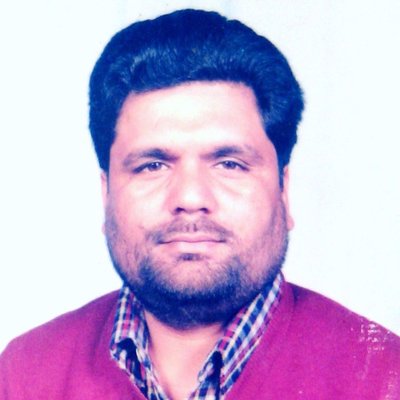National
NCP’s decision to impose name and capital of Province 3 is unconstitutional, experts say
‘It is clearly written in the constitution that name and headquarters of the province will be fixed by the concerned provincial assembly.’.jpg&w=900&height=601)
Anil Giri & Pratap Bista
The ruling Nepal Communist Party’s decision to instruct its provincial party committee and the parliamentary committee of Province 3 to adopt Bagmati and Hetauda as names of the province and its capital has met with criticism. Many legal experts describe it as a move against constitution and federalism—and a result of the leadership’s centralised mindset.
As per constitutional provisions, provincial assemblies have the right to decide the names of the provinces and their capitals.
Experts on constitutional affairs say at a time when the federal government should be making earnest efforts to implement federalism, such a move from the ruling party could jeopardise the newly adopted federal system.
Bipin Adhikari, an expert on constitutional matters and former dean of the Kathmandu University School of Law, said the decision to adopt the name and headquarters of any province is the sole business of the concerned provincial assembly.
“If any political party tries to impose its decision on the provincial assembly, it is against the spirit of the constitution,” Adhikari told the Post.
The decision was taken at the secretariat meeting of the ruling party on Sunday.
According to party insiders, secretariat members had agreed not to disclose the decision, saying it could immediately meet with fierce criticism.
Nepal adopted its constitution in 2015, federating the country into seven provinces. Elections held two years later installed a federal parliament and seven provincial assemblies. Each provincial assembly needs to endorse the name of the provinces and capitals with a two-thirds majority, according to the constitutional provision.
Four of the seven provinces are still struggling to decide on the names and capitals. Since the Nepal Communist Party (NCP) governs all the provinces except Province 2, there were indications that the provinces that were undecided on the names and capitals would look to the leadership in Kathmandu.
According to some leaders and officials who are familiar with the recent developments, after the Province 3 provincial assembly remained divided over the province name and the capital, Chief Minister Dormani Poudel had been knocking on the doors of the leadership in Kathmandu.
Some leaders in Hetauda, which was recommended the temporary headquarters by the Sher Bahadur Deuba government in January 2018, said Poudel had even held meetings with President Bidhya Devi Bhandari and Prime Minister KP Sharma Oli to lobby for giving continuity to Hetauda as the provincial headquarters. Poudel was elected from Makawanpur district.
Poudel, however, was facing opposition not only from other parties but also a section of lawmakers from his own Nepal Communist Party. Some communist party leaders were rooting for Kavre or Bhaktapur as the provincial headquarters.
Some ruling party leaders have also objected to Sunday’s secretariat decision.
Ratna Dhakal, a Province 3 assembly member from the ruling party, said the secretariat’s decision on the name and the headquarters goes against the spirit of the constitution and federalism.
“We won’t accept such an imposition on us from the top leadership,” said Dhakal. “It is clearly written in the constitution that the name and headquarters of the province will be fixed by the concerned provincial assembly.”
According to Dhakal, the party can make suggestions, but cannot impose its decision.
Poudel, however, said he does not find anything wrong in the secretariat’s decision.
“I welcome the secretariat’s decision,” Poudel told the Post over the phone.
But when asked how the party can decide on such matters, Poudel was quick to correct his statement. “The party has just suggested the name and the headquarters, it has not taken any decision,” said Poudel.
Poudel was confident of a decision on the name of the province and the headquarters through a vote “within a week”.
According to party insiders, on November 26, Chief Minister Poudel and Provincial Assembly Speaker Sanubabu Shrestha held a meeting with Nepal Communist Party Co-chair Pushpa Kamal Dahal in Hetauda. Dahal had then assured that the name of Province 3 would be Bagmati and its headquarters Hetauda.
That’s where the problem lies, say constitutional experts, as political leaders tend to play to the gallery and make assurances according to what their cadres and members like to hear.
According to Adhikari, Sunday’s decision, however, is emblematic of a bigger problem, as it shows a lack of democratic culture among political leaders who, even four years after adopting the federal system, view the country as a unitary state.
“This decision is not only constitutionally wrong but also politically flawed,” Adhikari told the Post. “When the constitution has bestowed the provincial assembly with the right to choose the name and the headquarters, how can the party meeting take a decision on the matter?”
Some political analysts have long been warning of challenges in the implementation of federalism, saying that such centralised decisions by the leadership in Kathmandu could render the provincial assembly irrelevant.
In a recent interview with the Post, Chandra Kishore, a journalist who has closely followed the country’s several movements including the one that demanded federalism, expressed concerns about the way federalism is being implemented.
“Federalism might have been well-intentioned, but it, like every other system Nepal has tried on, was co-opted,” he told the Post.




 8.22°C Kathmandu
8.22°C Kathmandu















